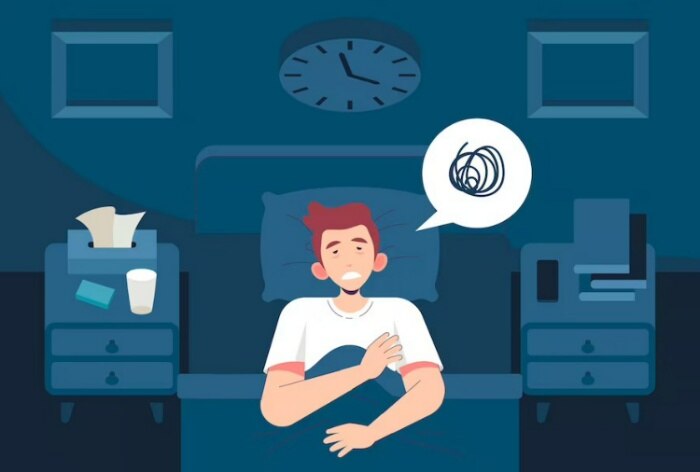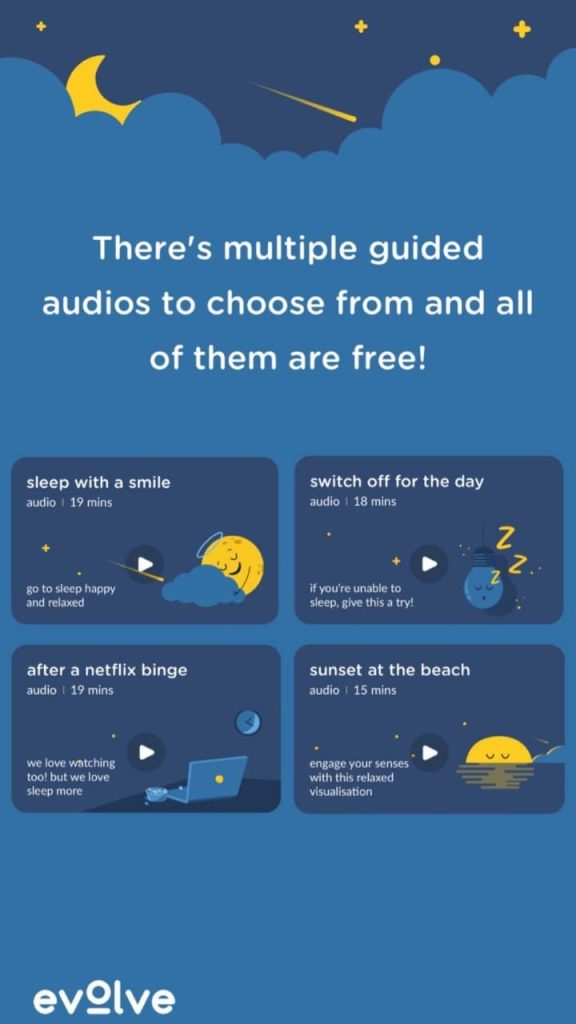

Sleepless nights are often more than just a temporary inconvenience; they can be a symptom of underlying anxiety. This pervasive issue silently impacts our rest and recovery, leading to a host of problems. Understanding this connection is the first step towards effective solutions. Sleepless nights related to anxiety can stem from a range of factors, impacting both mental and physical health. This article will delve into the complex relationship between anxiety and sleep, exploring the specific ways in which worry can interfere with your rest and recovery. We’ll present practical techniques to improve sleep patterns and offer strategies for managing anxiety triggers. We’ll delve into the science behind anxiety’s effects on sleep and examine various techniques for managing anxiety and improving sleep, such as relaxation techniques, mindfulness practices, and cognitive behavioral therapy (CBT). The article will be structured as follows: First, we’ll explore the link between anxiety and sleep disturbances, followed by a discussion on the impact of sleep deprivation and anxiety. Then, we’ll look at proven methods and techniques to help manage anxiety-related sleep issues. Finally, we’ll offer practical strategies for managing anxiety triggers and improving sleep habits for a better quality of life.
The Silent Struggle: Anxiety and Sleepless Nights
Understanding the Connection
Anxiety disorders often manifest in a constellation of symptoms, impacting various aspects of life. One significant manifestation is the disruption of sleep. Sleep problems and anxiety are intricately linked. The constant worry and racing thoughts associated with anxiety can make it difficult to fall asleep, stay asleep, or experience restorative sleep. This disruption in sleep patterns can worsen existing anxiety and even contribute to the development of new anxieties. For many, the fear of not being able to sleep creates a vicious cycle. This anxiety can impact daily life, affecting mood, productivity, and overall well-being. The impact of anxiety on sleep can manifest in various forms, from difficulty falling asleep to frequent awakenings throughout the night. Anxiety can also trigger nightmares, further disrupting a peaceful night’s rest. A poor night’s sleep, in turn, can heighten anxiety levels. This can make it difficult to distinguish between the cause and effect of the issue.
The Impact of Sleep Deprivation
Chronic sleep deprivation has a cascade of effects on the body and mind. Lack of sufficient sleep can trigger or worsen anxiety, making it challenging to manage the underlying symptoms. When sleep is chronically disrupted, levels of cortisol (the stress hormone) can rise, further feeding the cycle of anxiety and insomnia. Individuals experiencing chronic sleep deprivation may experience a heightened sense of vulnerability and increased irritability, which can exacerbate anxiety. This can lead to mood swings, difficulty concentrating, and decreased problem-solving skills. Moreover, sleep deprivation can impair the body’s immune response, making individuals more susceptible to illness.
Coping Strategies for Anxiety-Related Sleep Issues
Relaxation Techniques
Practicing relaxation techniques can be a powerful tool for managing anxiety and promoting better sleep. Techniques such as deep breathing exercises, progressive muscle relaxation, and guided imagery can help calm the mind and body. Deep breathing exercises, for example, can slow down heart rate and reduce the feeling of tension, making it easier to transition into a state of relaxation conducive to sleep. Regular practice of these exercises can foster a sense of calm and tranquility, easing the transition into sleep. Incorporating relaxation techniques into your daily routine can prove incredibly beneficial for managing both anxiety and sleep difficulties. By creating an environment that fosters relaxation, anxiety can be mitigated, facilitating better sleep quality.
Mindfulness and Meditation
Mindfulness and meditation practices can help quiet the racing thoughts and worries that often keep individuals up at night. Meditation can cultivate a sense of mental calmness and reduce the hyperactivity of the mind often associated with anxiety. By focusing on the present moment, rather than dwelling on the past or worrying about the future, individuals can detach from anxiety-provoking thoughts and emotions, thereby improving their sleep quality. Numerous mindfulness apps and guided meditation sessions are easily accessible, providing readily available resources to support sleep improvement.
Related Post : Understanding the Silent Triggers Behind Daily Anxiety Struggles
Lifestyle Changes and Anxiety Management
Establishing a Consistent Sleep Schedule
Maintaining a regular sleep schedule, even on weekends, can significantly improve sleep quality and regulate the body’s natural sleep-wake cycle. By consistently going to bed and waking up around the same time each day, individuals can strengthen their body’s natural sleep-wake rhythm, making it easier to fall asleep and stay asleep. A regular sleep schedule helps regulate the body’s internal clock, promoting better sleep hygiene.
Nutrition and Diet
The food we consume can significantly influence our mood and sleep patterns. Consuming a balanced diet rich in fruits, vegetables, and whole grains is essential for overall well-being, including sleep quality. Avoiding heavy meals or caffeine and alcohol close to bedtime can prevent digestive issues and disrupt the sleep cycle. Furthermore, a healthy diet can positively impact mood and anxiety, contributing to more restful sleep.
Seeking Professional Help
The Role of Therapy
In cases where anxiety-related sleep problems persist despite lifestyle changes and relaxation techniques, seeking professional help is essential. Therapists specializing in anxiety disorders can provide personalized strategies and guidance to help individuals understand and manage their anxiety triggers. Cognitive Behavioral Therapy (CBT) is a widely used therapy that can help individuals identify negative thought patterns and develop healthier coping mechanisms. Cognitive behavioral therapy (CBT) can teach individuals skills to change negative thought patterns, which can help to ease anxiety and promote healthy sleep patterns. This can significantly improve sleep quality and reduce the frequency of anxiety attacks. A therapist can assist in developing a tailored approach to address anxiety, helping to improve overall mental health and promote better sleep habits.
Medication Options
In certain situations, a therapist may recommend medication to help manage anxiety. These medications can help reduce the intensity of anxiety symptoms, creating an environment more conducive to sleep. It’s crucial to consult with a healthcare professional to discuss the potential benefits and risks associated with medication options. They can help determine if medication is appropriate and, if so, which type might be most effective.
Practical Strategies for Improved Sleep
Creating a Relaxing Sleep Environment
Creating a relaxing sleep environment is crucial for promoting better sleep quality. A quiet, dark, and cool bedroom can set the stage for a good night’s rest. Reducing exposure to light and noise, especially before bed, can help to regulate the body’s natural sleep-wake cycle. Ensuring a comfortable temperature and using blackout curtains or eye masks can further enhance sleep quality and limit anxiety. Consider using white noise machines or earplugs to block out distracting sounds, or using aromatherapy to create a calming atmosphere.
Establishing a Bedtime Routine
Establishing a consistent bedtime routine can prepare the body and mind for sleep. This routine can involve activities like taking a warm bath, reading a book, or practicing relaxation exercises. Creating a relaxing bedtime routine can help to signal to the body that it’s time to wind down and prepare for sleep. This routine can also help to reduce anxiety and promote better sleep quality. Incorporating calming activities before bed is a proactive step in combating anxiety and promoting peaceful sleep.
In conclusion, sleepless nights stemming from anxiety significantly impact rest and recovery, leading to a cascade of negative consequences. Understanding the underlying causes and employing effective coping mechanisms are crucial for reclaiming restful sleep. By addressing the anxieties driving sleepless nights, individuals can foster better mental well-being, improve physical health, and enhance overall quality of life. If you’re struggling with consistent sleeplessness, consider seeking support from a mental health professional. They can provide personalized strategies and guidance to help you navigate your anxiety and cultivate better sleep habits. Learn more about sleep disorders and anxiety by visiting our website for helpful resources and further information.